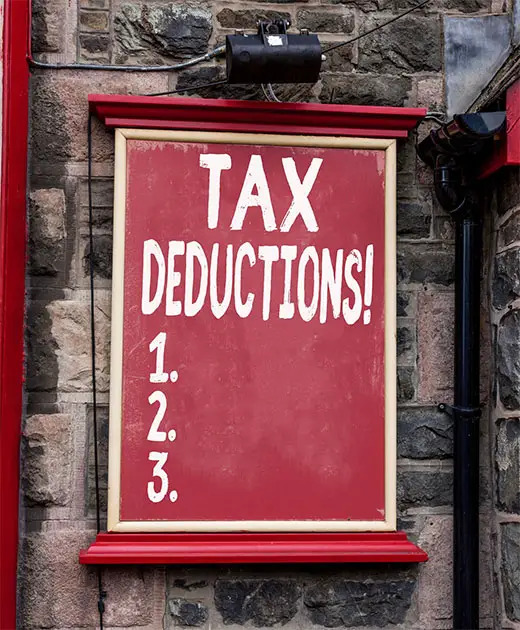09.26.2020
5 Tax Deductions Every Freelancer Should Know About
If you're working as a freelancer, it is imperative that you fully understand the tax laws that are in place and how you can ensure you minimize your tax payments. Several deductions are available to freelancers that can help you reduce your tax bill and simplify tax filing. Here's our lowdown to the five tax deductions every freelancer should exploit. What are Tax Deductions?A tax deduction is an amount of money that is removed from your total taxable income. As such, the higher the deduction, the less money you will be required to pay to the government. There are two types of tax deduction: Standardized and itemized. Standardized Versus Itemized Deductions Various costs qualify as deductible expenses; however, they can be broadly separated into two types: Standardized: Set, fixed deductions. Itemized: Tax deductions that are unique to your situation. 1. Home Office DeductionsIf you're working from home, your home office is legally classified as an office, even if you do not own the property and are renting it from a third party. This means that you may qualify for a home office deduction. If so, you can remove all the expenses associated with running your home office from your tax bill. 2. Transportation DeductionsDepending on the nature of the freelance work you complete, you may need to commute to meet clients or conduct business. Transportation is associated with expense; for example, wear and tear on your truck or gasoline costs. The IRS permits you to deduct transportation expenses from your tax return. You can either submit a standard deduction that is derived from the number of miles you need to drive to conduct business or compute the cost of running your vehicle and the amount of money you spend on gasoline. 3. Training and DevelopmentSome freelancers are required to update their skills regularly; for example, software programmers and electricians. If you need to engage in training and development as part of your freelance work, you will be permitted to deduct the associated costs from your income and, thus, reduce the amount of tax payable. 4. Computer Website DeductionsIf you set up a website to advertise your business or communicate with customers, you can remove the costs of doing so from your income. Expenses such as purchasing a domain name, hosting, and web development are all tax deductible. Ensure you maintain a running record of all the costs associated with establishing and maintaining your website. 5. Software DeductionsMany freelancers perform computer-based work. This may necessitate the purchase of software packages such as video editing software, word processing applications, or web development apps. Any associated expenses can be deducted from your income to reduce your tax bill. |
 GoodCalculators.com
A collection of really good online calculators for use in every day domestic and commercial use!
GoodCalculators.com
A collection of really good online calculators for use in every day domestic and commercial use!
- Salary & Income Tax Calculators
- Mortgage Calculators
- Retirement Calculators
- Depreciation Calculators
- Statistics and Analysis Calculators
- Date and Time Calculators
- Contractor Calculators
- Budget & Savings Calculators
- Loan Calculators
- Forex Calculators
- Real Function Calculators
- Engineering Calculators
- Tax Calculators
- Volume Calculators
- 2D Shape Calculators
- 3D Shape Calculators
- Logistics Calculators
- HRM Calculators
- Sales & Investments Calculators
- Grade & GPA Calculators
- Conversion Calculators
- Ratio Calculators
- Sports & Health Calculators
- Other Calculators
 From the perspective of tax, operating as a freelancer is comparable to running a one-employee business. If you do not manage your taxes effectively, you could end up having a higher tax liability than you would if you were working directly for a different organization.
From the perspective of tax, operating as a freelancer is comparable to running a one-employee business. If you do not manage your taxes effectively, you could end up having a higher tax liability than you would if you were working directly for a different organization.